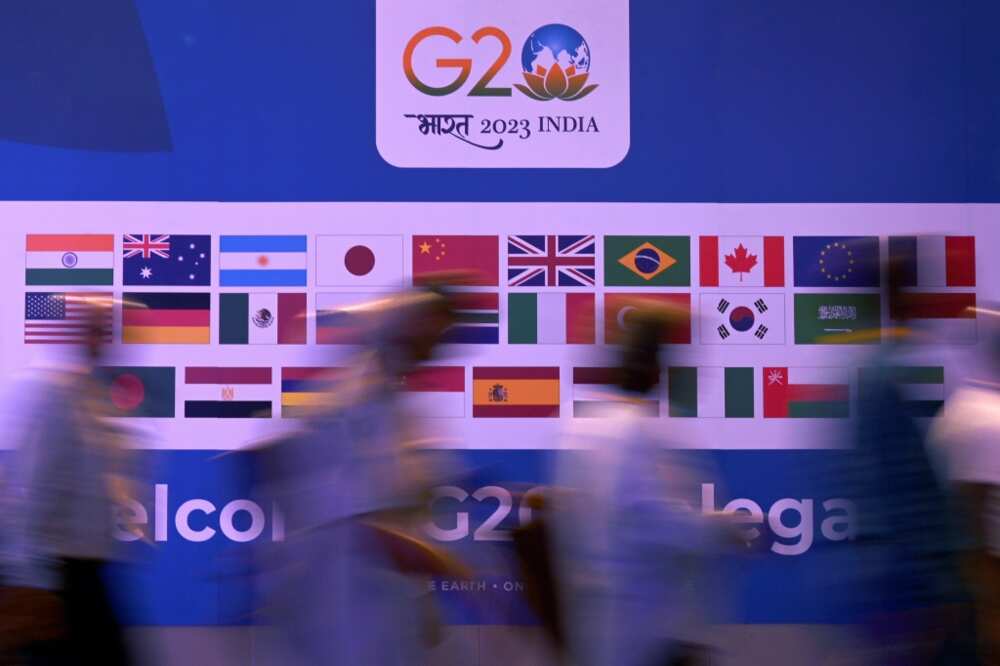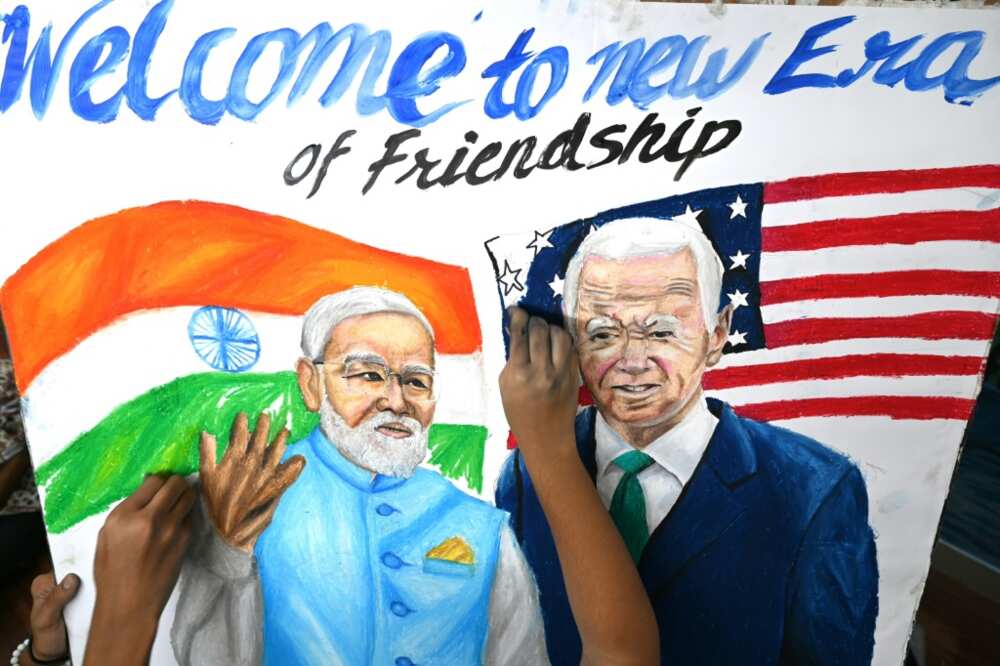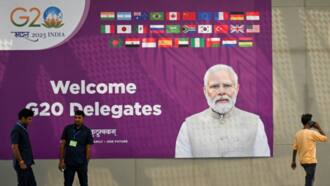Divided G20 in India to confront a sea of troubles

Source: AFP
Unlock the best of Legit.ng on Pinterest! Subscribe now and get your daily inspiration!
Indian Prime Minister Narendra Modi seeks to forge consensus Saturday on a host of contentious issues from Ukraine to climate change, as G20 leaders hold their annual summit in New Delhi.
Divided over Russia's war in Ukraine and gridlocked on finding agreement to slash carbon emissions, the summit's most tangible outcome could be the expected accession of the African Union to the grouping that represents 85 percent of global GDP.
The Group of 20 was conceived in the throes of the 2008 financial crisis as a way of managing the global economy.
But finding consensus among members has been increasingly difficult in recent years.
Even before it began, the importance of the New Delhi summit was called into question when China's Xi Jinping decided to skip the meeting and send his number two, Premier Li Qiang, to India instead.
No official reason was given for Xi's absence, but the Asian giants have been at loggerheads over a border dispute and other issues, while Beijing is seeking to make US-led groupings such as the G20 more amenable to its own interests.
PAY ATTENTION: Join Legit.ng Telegram channel! Never miss important updates!
Russia's seat is taken by Foreign Minister Sergei Lavrov, with diplomatic opprobrium and war crimes charges keeping the country's leader Vladimir Putin from the summit.
United Nations chief Antonio Guterres warned Friday of growing global divisions, insisting countries must assume responsibility regardless of "whether it's the president or the prime minister or the vice president" who is in New Delhi.
Climate 'out of control'
The backdrop to the talks could hardly be starker: the European Union's climate monitor has said this year is likely to be the hottest in human history, with Guterres declaring on Friday the "climate crisis is spiralling out of control".
G20 countries account for around 85 percent of global climate warming emissions, making action in the forum crucial to real progress.
India's Modi has painted the summit as his country's diplomatic coming of age -- evidence of New Delhi's clout and prestige on the global stage.

Source: AFP
While spoilers may yet stop the bid, Modi does look set to secure one notable diplomatic victory, with several leaders expressing support for expanding the bloc into the "G21" by including the African Union as a permanent member.
The move would help burnish Modi's image as a self-styled leader of the "Global South", a bridge between developed and developing countries.
Modi argues developing nations need a greater say in global decision-making, and an invitation for the 55-member AU to join could come as soon as Saturday.
South Africa is currently the only G20 member from the continent.
But on Ukraine there was little sign of progress.
Moscow continues to press its allies to water down international condemnation of its invasion of Ukraine, throwing up a major roadblock to joint action.
Ahead of his arrival in New Delhi on Friday, US President Joe Biden insisted that the G20 can still "deliver", even as markets fret that a trade war between the world's two largest economies -- the United States and China -- is poised to escalate.
Many G20 leaders fear their countries are already at risk of becoming collateral damage as the big beasts of world trade lock horns.
Washington has restricted US technology transfers to the world's second-largest economy and rumours have swirled that Beijing may be about to ban Apple's ubiquitous iPhone -- most of which are made in China.
China was overtaken as the world's most populous country by India this year and growth is slowing, with economists pointing to structural problems such as a shrinking labour force, slower productivity and an overheated real estate market.
Source: AFP



